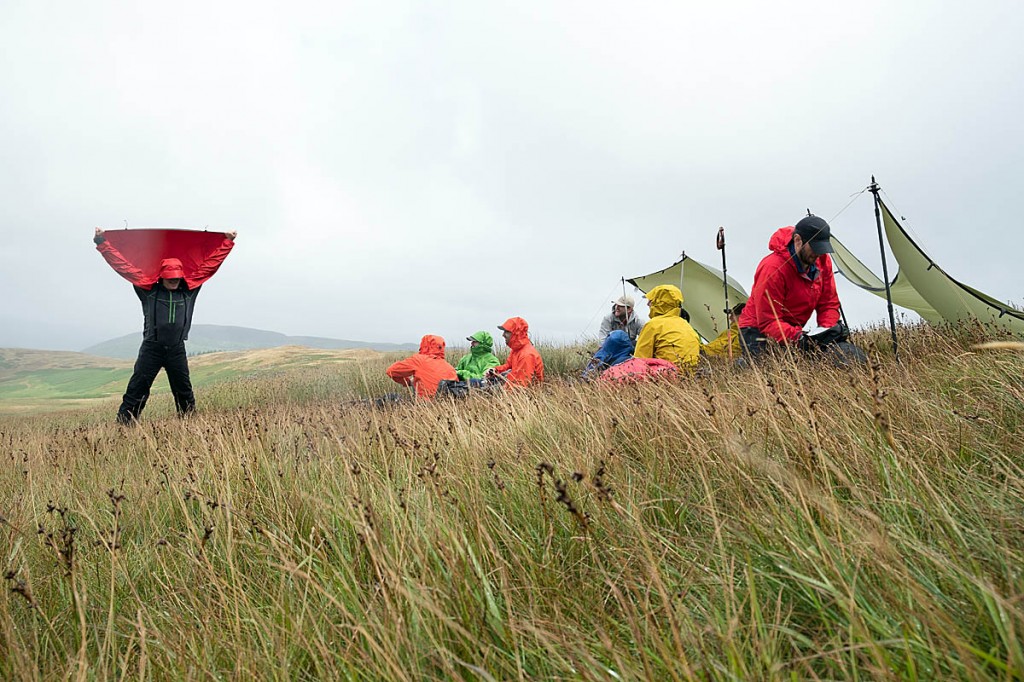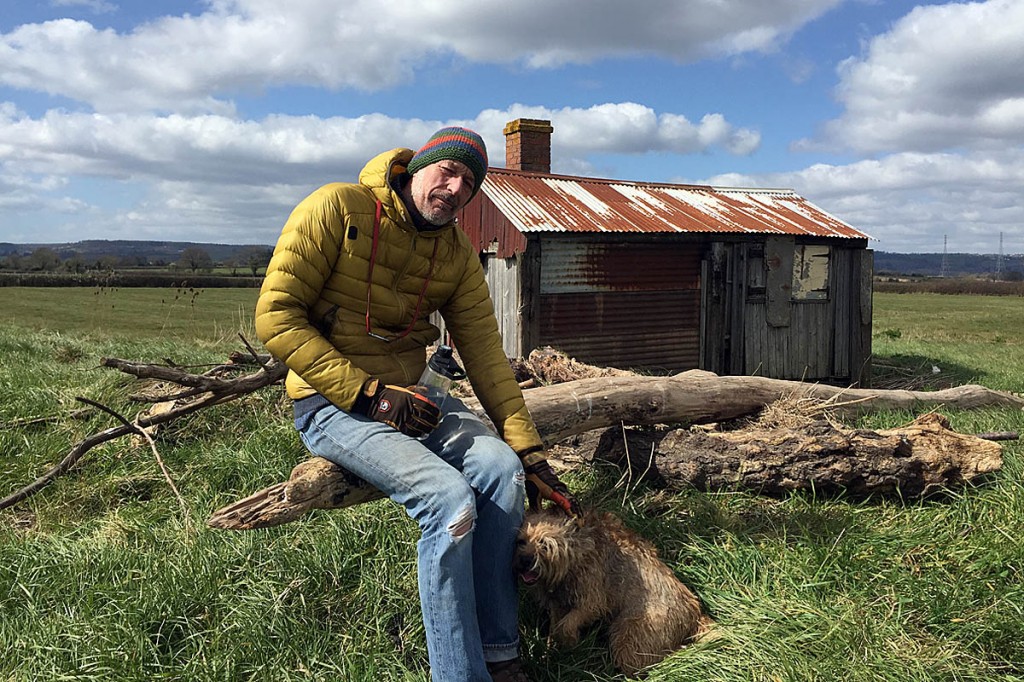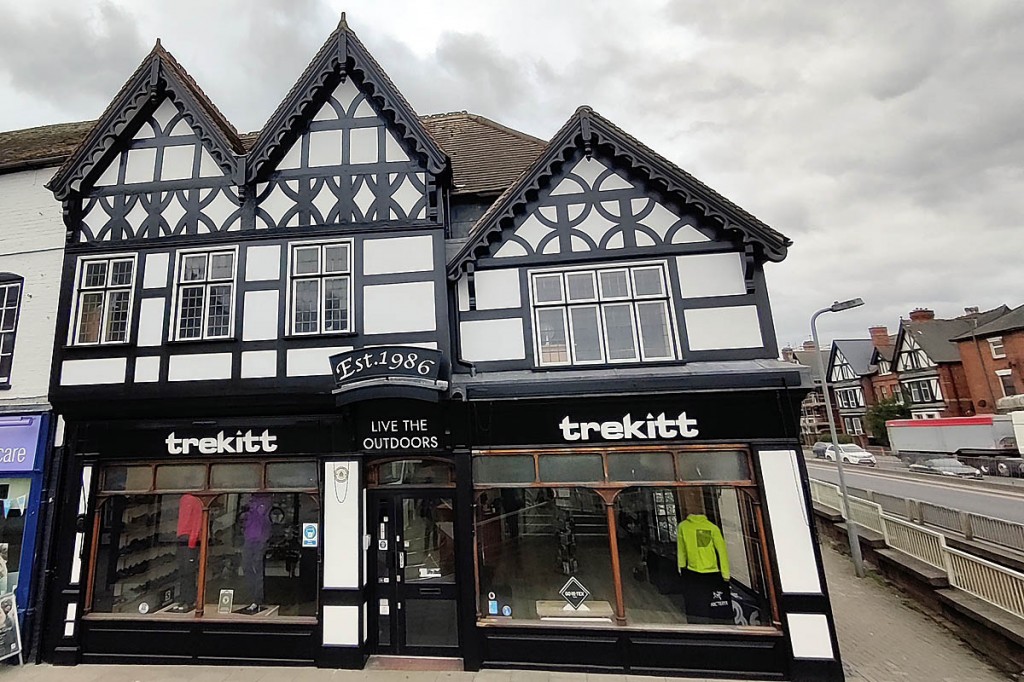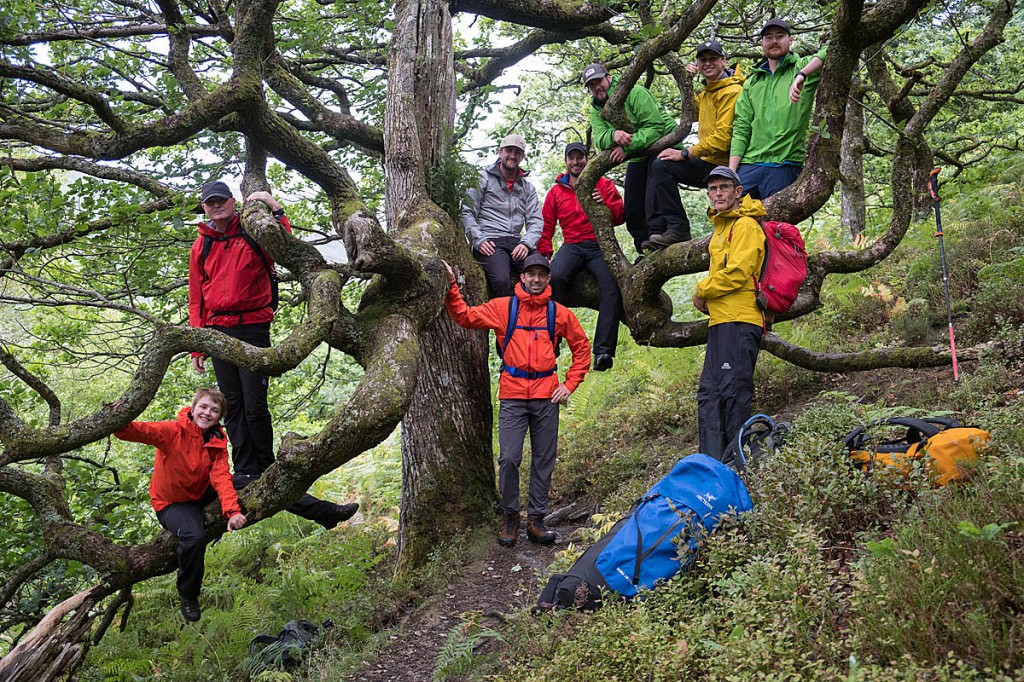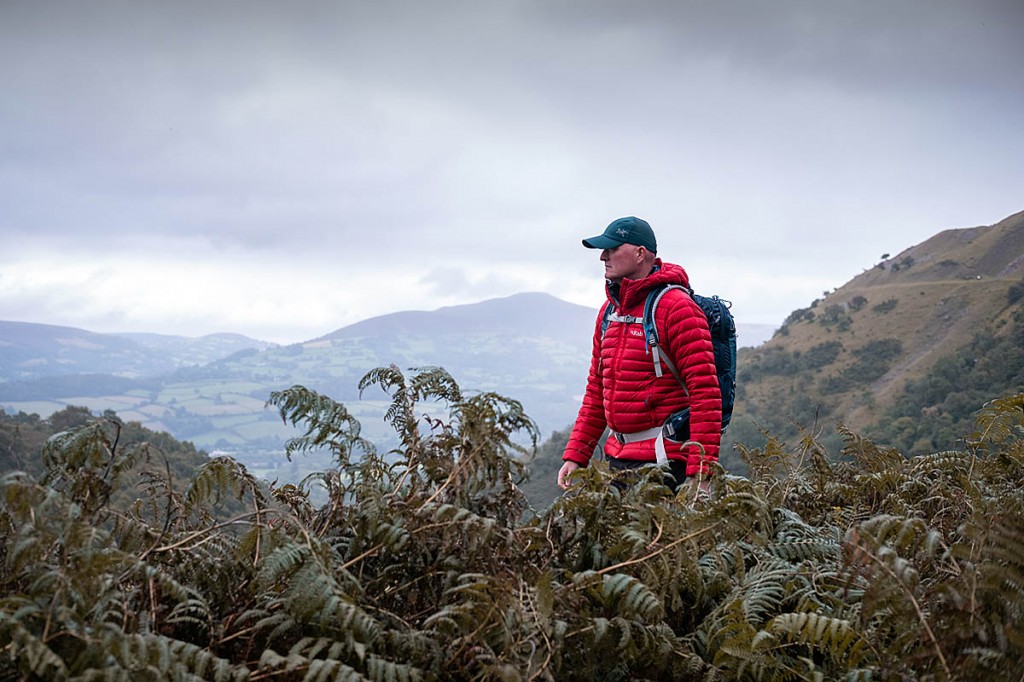From Monday, people in England will be able to visit the hairdresser, have pint in a beer garden and enjoy the fun of a theme park.
It’s also the day when non-essential retailers will be allowed to reopen their doors to customers in England and Wales. This means outdoor enthusiasts eager to re-equip themselves will be able to browse High Street shops again. Similar lifting of restrictions is likely in Scotland towards the end of April.
The past year has been tragic for many families, with Office for National Statistics revealing more than 137,000 people in England and Wales dying with Covid-19 mentioned on the death certificate, a fifth of all recorded fatalities.
It has also put a severe financial strain on many people and companies, with the outdoor sector not immune from the impact of the pandemic. This, coupled with problems caused by the end of the Brexit transition period, have affected many businesses.
Outdoor instructors and outdoor education centres have had a lean 12 months, with the latter unable to welcome young people because of lockdown restrictions.
In retail, even big names encountered difficulties, with Go Outdoors owner JD Sports putting the giant chain into administration in June last year, immediately buying the company back, in an attempt to deal with crippling debts. The outdoor division of JD Sports recorded an operating loss of £14m in the half-year to August 2020. The ‘restructuring’ of Go Outdoors cost £20.3m and the sector ended up with six fewer shops.
Retail monitor Salience said the online outdoor retail market shrank by 2 per cent, despite 2020 seeing a surge in stay-at-home holidaying and UK residents taking their breaks in the British countryside.
Not surprisingly, camping came high on the number of online searches, with women’s clothing and shoes also scoring well.
So there was certainly a mixture of fortunes, with an increase in interest in outdoor pursuits such as walking and camping, but prolonged forced closures of physical shops leading to more online sales.
Despite the difficulties of Go Outdoors, large chain retailers continue to dominate the market in the UK, with independent shops battling to keep their share of what is likely to become a growing number of customers as the public discovers the appeal of the great outdoors as lockdown eases.
We looked at how one such independent company, Trekitt, in Hereford, is faring amid all the uncertainties of the past year.
The firm is family owned and began life in 1986 when Dick Trepte opened a shop in Abergavenny with his brother-in-law Neil Akitt. They combined elements of their surnames to come up with a company name that fitted the bill for an outdoor retailer.
Dick’s sons Paul and Mark currently run the company as managing director and commercial director respectively, with Paul’s wife Fiona Trepte in the role of financial director.
Three years after its opening, the company moved across the border to Hereford and Paul, who had a background in retail sales, joined the family firm.
Things nearly came unstuck a few years ago when Trekitt got into financial difficulties. What caused this? Mark said: “Quite simply, overtrading. We got so big so quickly.
“At that time, we had 10 stores with both Quiksilver and Trekitt fasciae and 175 staff. Then the bank withdrew their lending facility and around that time the surf market bubble burst resulting in Quiksilver demanding their stock back. If you expanded rapidly and were heavily capitalised a 10 per cent drop in trading was a disaster.
“It woke us up to the unsavoury nature of being in the fashion business.”
So how easy or difficult is it for an independent retailer to operate in the face of the growth of large multiples within the sector?
Mark said “It’s difficult but we’ve found that customers will always shop where they can get good service. It’s difficult if you’re trying to compete against them directly but on the other hand, they are very big and don’t move very fast.”
Paul added: “In some respects they make us look better by showing their customer service isn’t brilliant. You can beat them by just being better. But on the other hand, cut price stock and the pressure they put on suppliers is difficult.
“We try not to focus on competition too much though. We hope that customers migrate to us because we care and we’re more than a vendor, we have experience and information that we want and are willing to share. Our service is second to none. As we say here at Trekitt, lots of JFDI ‘Just flipping do it’ and JBB ‘Just be better’.”
This approach is reflected in reviews of Trekitt, with a 99 per cent rating on Google Shopping, and 4.4 stars out of 5 on Trustpilot.
Paul’s interests in the outdoors extend beyond selling gear to customers. How does he spend his spare time? “In two words going outdoors. Hiking, mountaineering, snowboarding, cycling, mountaineering, travel and off-road motorbiking in strange places. Bike-packing before it was called bike-packing, mountain biking before it was called mountain biking.
“We’ve done a lot of things, none to a particularly high standard. I’ve done a bit in the Himalayas; we’ve climbed at extreme levels but we’ve never been ‘professional’ at any of it we just enjoy being out there.”
Trekitt has had an online sales website for 11 years and has taken the bold decision to turn its town-centre shop into a ‘service centre’ rather than a standard walk-in store.
Paul said: “The first website with intelligent retail was launched in 2010. It actually went quite well for the first year but then, we were starting at ground zero and the only way was up.”
Mark said: “I remember sitting at a friend’s and watching the computer at the same time only to see a sale for a Rab sleeping bag go through. I was incredulous: we had just taken £200 while we were having our dinner.”
Paul added: “I used to sit at the computer and watch where the orders were coming from. It wasn’t the norm in the outdoor industry. We were one of the first.
“Previously we had a one-page website saying that we don’t do online retail and asking them to come into the shop and talk to real people. Then we noticed people coming into the Hereford shop and getting their phones out and asking why we couldn’t do it for ‘that price’. Initially the internet was all about price. We also had a lot of people who were driving 60 miles to get to us and they were asking us to sell online as it would be easier.”
The online presence is augmented by a series of YouTube ‘explainer’ videos which have proved very popular. Paul says: “We were doing a performance development review with Harry [Bradbury, the firm’s website and digital marketing assistant] and one of the questions was ‘what do you do in your spare time?’ He told us that he made mountain biking videos with Jaime [Osbaldiston], one of Trekitt’s buyers.
“It just so happened we were exploring the possibility of producing videos. Everyone was doing them at that time. I asked if he fancied doing some for Trekitt. He did a couple and they turned out all right. Initially we gave him a nice camera and off he went. Now we have a lighting rig, studio, sounding rig – yeah, we’ve probably spent around £7,000 on equipment but it’s a small investment when you look at the returns.
“The first one we did was in 2016 and that’s had 16,893 views. Today our most popular video, ‘How to fit your rucksack correctly’, has had nearly 300,000 views. It’s all about information, stuff that we, personally, take for granted and think that everyone else knows but they don’t.”
These innovations were in place before the coronavirus pandemic, but the conversion of the Hereford store to a service centre coincided with the lockdown introduction.
Mark said: “We planned to introduce appointments and give people a more specialist service before Covid and then when it kicked in it seemed like the obvious solution.
“It’s been really successful and we don’t see a reason to go back. We get through about 30 or 40 appointments a day and have a 100 per cent conversion rate.” That’s to say each visit results in a sale.
“All of the stock is online and the shop manager picks what he wants in the shop. Customers can click and collect or they can let us know ahead of the appointment what they’re looking for so we can get it in the shop in advance. We make two van runs from warehouse to the shop per day.”
When lockdown is eased on Monday, Trekitt intends to continue with this method of trading.
The company has had good sales during the pandemic. Mark said: “We have 29 staff and kept our Trekitt team on 100 per cent salary throughout furlough. Initially we went down to nine staff at the start of the epidemic but that didn’t last long because we’ve been so busy.”
Paul said: “We’re about 40 per cent up on last year in terms of turnover and most of that is from online sales because the shop has been shut for a large part. At the end of March total sales were 40 per cent; internet sales up 57 per cent and shop sales down by 53 per cent.”
How much of this is due to the change in operations from shop to ‘service centre’ operation? Mark said: “There’s very little difference; service centre turnover had just about climbed back to 100 per cent of previous years ‘shop’ turnover when lockdown V2 happened. Customers are already booking appointments for the 13th onwards and early indicators are looking good so I’m pretty confident we’ve got this right.”
Paul added: “The upside of the service centre set up is that the customer gets a better experience. They know that they’re going to see someone when they come in and will get the opportunity to talk about the subject they are interested in.
“Fewer people are coming into the shop but the conversion is nearly 100 per cent. People are no longer wandering in off the street; those that don’t tend to buy stuff are not coming in. We always knew we were a destination shop and this has made it official, with one-to-one experiences with a knowledgeable member of staff who can give customers undivided attention.”
Another successful strategy has been to get a woman member of staff involved in the buying process.
Mark said: “It brings a bit of balance to the ranging process. We involved Hannah [Campbell, website and digital marketing assistant] so that she could spot the things that bearded outdoor blokes might miss. She’s also great at spotting trends.
“Our women’s sales have increased by 50 per cent, ahead of our overall turnover increase over the last year. It really is doing a lot better.
“There are definitely more women in the outdoors and more women buying from us in particular and it’s helped having a woman involved. The manufacturers themselves are also properly developing the women’s ranges now: it’s not just a man’s coat in purple, it really has got a lot better. Particularly notable are Rab and Montane.”
As well as having to contend with Covid-19, Brexit and the end of the transition period coincided with the late 2020 surge in the pandemic.
What effect has Brexit had on the business? “Virtually nothing in terms of sales but we’re seeing some problems in supply from European-based manufacturers and it’s a struggle to get hold of stuff,” said Mark. “It’s the late deliveries that are causing the hiccups and our empty boxes in the warehouse. We don’t sell to Europe anymore – the initial issues with shipping to Europe made the very little we were selling there not worth it so we turned it off.”
With overseas holidays in doubt, reports of UK destinations, including campsites, seeing a surge in bookings, how are things looking for shifting camping gear?
Paul said: “Mark and his team have made a concerted effort to broaden the camping offer for this summer and early indications are that they are selling really well. We don’t like to creep to lower-priced items preferring instead to keep quality high but broaden the range.”
Mark said: “As ever, when there’s a broadening of the marketplace a few of those will want more from their kit and they are the ones we are after. Equipment sales across the board are up already and last year was a good year. For 2021 we have more than doubled our orders of tents.”
So how is the future looking? “Rosy,” said Paul. “It’s looking good.”
Mark added: “We’ve had five or six years of uninterrupted growth and we feel like we’ve arrived. People know who we are and we have a good, sustainable future with good kit for those that really want it.
“It’s not all about the Trepte family at all but it’s the Trekitt family. And the brilliant people that we have working for us,” said Paul. It’s been fantastic to see these guys develop and grow into enthusiastic and professional people.”
More details, including links to YouTube explainer videos, are on the Trekitt website.
